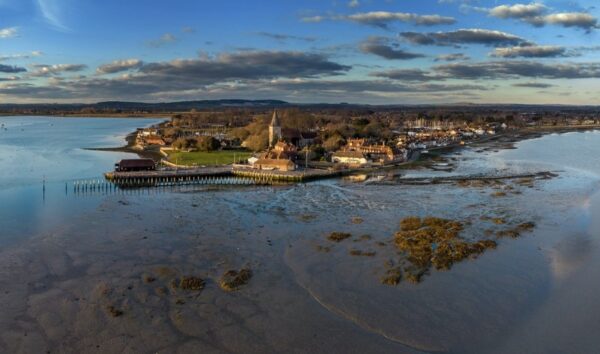Recreational drugs, pesticides and medicines have been found in seawater samples collected off the south coast of England.
Researchers from Brunel and Portsmouth universities analysed nearly 300 samples from Langstone and Chichester harbours, in Hampshire and West Sussex.
Photo by Bob Brewer
The researchers said they found more than 50 different chemical compounds. They include commonly prescribed medicines to treat conditions such as type 2 diabetes and high blood pressure, as well as nicotine and benzoylecgonine, which is produced by the liver after cocaine use. Each of the 23 sites sampled had, on average, traces of 19 different compounds.
Both harbours have outflow pipes from water treatment plants that regularly discharge raw sewage and the enclosed water can slow down the flow of effluent to the open sea.
Prof Alex Ford, from the University of Portsmouth’s school of biological sciences, said: “We know there are billions of litres of sewage discharges annually around the UK but the impact of these discharges are not clearly understood.
“This project is enabling us to determine what chemical contaminants are in our marine life and coastal waters. We have found a large variety of prescribed and illegal drugs plus a variety of pesticides in coastal waters and marine organisms, such as crabs and oysters.
In a novel collaboration between local interest groups and Portsmouth and Brunel Universities, hundreds of samples were gathered off the coasts of Hampshire and West Sussex by the Clean Harbours Partnership (CHP) campaign group last year as part of Project Spotlight.
